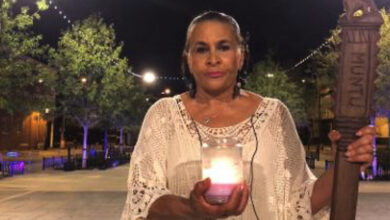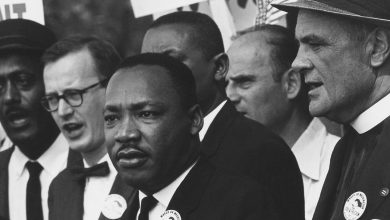Oakland Forms Bonds with Bolton, England and Sanzule Kingdom, Ghana New Sister Cities Strengthen Cultural, Economic Ties and Promise Mutual Growth for All Communities Involved


By David Ford, Special to NNPA Newswire
Twice. That is how many times I have had to battle cancer.
I still consider myself very fortunate, although surviving a disease that is expected to kill nearly 609,820 Americans this year is not a matter of luck. The fact is that cancer screenings can help save lives.
When I was diagnosed with prostate cancer, I thought my prospects were dire. According to the American Cancer Society, prostate cancer incidence among Black men is more than 70% higher than in white men, and Black men are more than twice as likely to die from prostate cancer than white men. In fact, Black men have the highest death rate for prostate cancer of any racial or ethnic group in the U.S.
Thankfully, my prostate cancer was detected early. Three years prior, a tumor ruptured my colon, which is how I learned I had colorectal cancer. Had I heeded my doctor’s recommendation to undergo a colonoscopy months before, I could have had the tumor removed and prevented it from causing additional damage.
I learned that early detection is key to surviving cancer, so I prioritized my physical exams and cancer screenings. In 2018, elevated prostate-specific antigen (PSA) test results signaled the potential for prostate cancer, and a biopsy confirmed it. I started my radiation treatment right away. Today, I am in remission.
Prostate cancer accounts for more than a third of all new cancers in Black men. Now this is what I want you to remember: when prostate cancer is found early, the five-year survival rate is nearly 100%. However, the likelihood of survival drops to 32% when it is found in its advanced stages.
This means that a future generation with zero deaths from prostate cancer is not a dream but an attainable goal IF the people who need cancer screenings can get them.
It also means that more lives can be saved if the disease is detected and treated early when treatment is more effective and less expensive.
Unfortunately, Black people generally have lower rates of cancer screening, likely due to factors such as having less access to care, lower likelihood of doctor recommendation and medical mistrust.
Out-of-pocket costs can also be a barrier to accessing screening.
As a prostate cancer survivor and member of the American Cancer Society Cancer Action Network’s (ACS CAN) Board of Directors, I believe that everyone should have a fair and just opportunity to prevent, detect, treat, and survive cancer.
I know that having equitable access to screening is critical to reducing prostate cancer deaths and saving more lives, especially in the Black community.
That’s why I’m glad to see that there’s a bill before Congress that would help remove cost barriers to prostate cancer screening for men at high risk for the disease, the Prostate-Specific Antigen Screening for High-risk Insured Men (PSA Screening for HIM) Act.
Introduced by Representatives Larry Bucshon, M.D. (R-IN), and Yvette Clarke (D-NY) and Senators Cory Booker (D-NJ) and John Boozman (R-AR), this bipartisan bill would waive cost-sharing requirements for prostate cancer screenings for men with the highest risk of prostate cancer, focusing on Black men and those with a family history of the disease.
If the bill is passed it means that men at high risk of being diagnosed with prostate cancer would be able to get prostate cancer screenings without out-of-pocket costs, such as deductibles, copayments, or coinsurances.
Our elected officials play a vital role in helping reduce the cancer burden and persistent disparities by advancing public health policies that improve access to prevention and early detection services.
As part of ACS CAN’s Leadership Summit and Lobby Day, I traveled to Washington, D.C. recently to meet with members of Congress to urge them to support the PSA Screening for HIM Act.
Passing this legislation is a crucial step to saving more lives from prostate cancer. It would also help address the unjust and unacceptable cancer disparities in the Black community.
Everyone at high risk for prostate cancer who has made an informed decision with their doctor to get screened should have access to that screening without cost-sharing posing an obstacle.
My plea to all men — Black men in particular — is to get your regular checkups, talk to your doctor about the benefits and limitations of PSA screening, and urge your Congressional representatives to support the PSA Screening for HIM Act. If health is wealth, consider this practice part of your legacy.
David Ford is a dedicated cancer advocate and currently serves as a member of the Board of Directors of the American Cancer Society Cancer Action Network (ACS CAN), the advocacy affiliate for the American Cancer Society.




